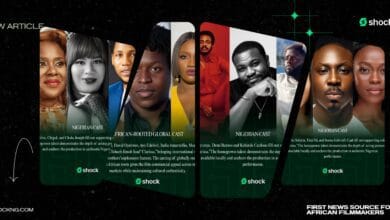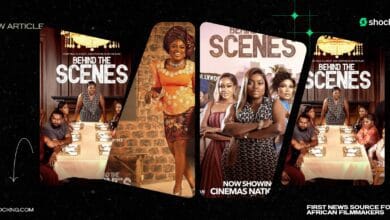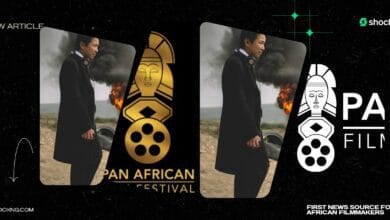The Story⚡
In a Lagos ballroom humming with the low thrum of shared ideas, Davido leaned into a microphone and said, “To make Afrobeat authentic in the future, its originality must be kept intact.” It was one line from a day packed with them—November 3, 2025, when AFRIFF’s second day turned panels into quiet reckonings on music’s role in film, and Africa’s place in a wider world.
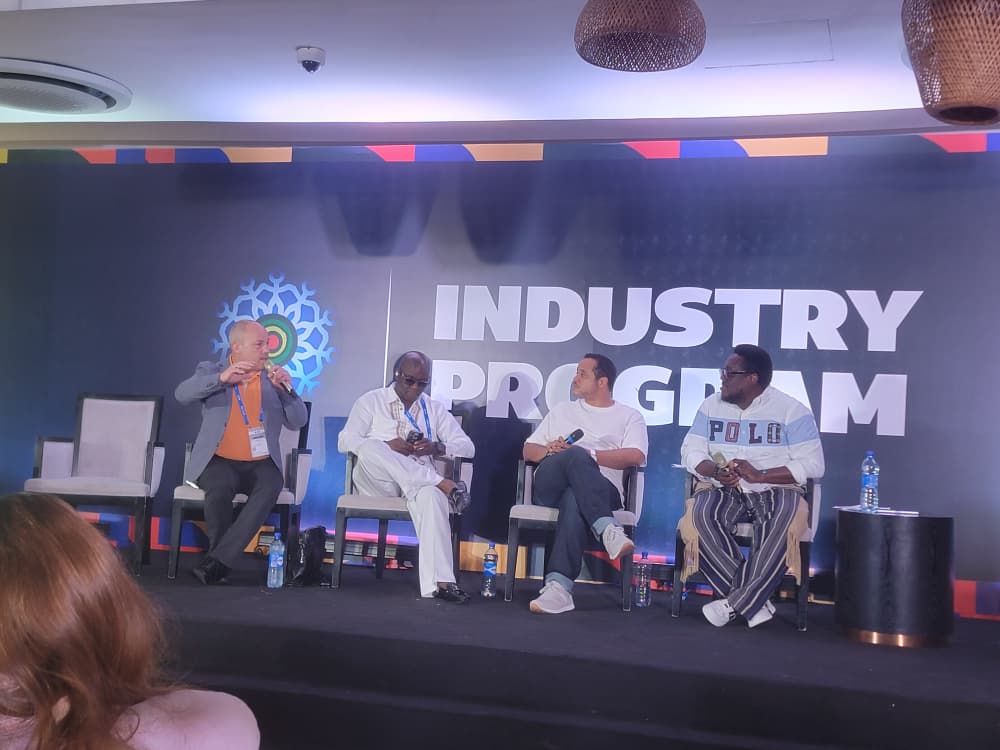
Tell Me More
Day 2 of the Africa International Film Festival (AFRIFF) unfolded across five panels, each probing the threads connecting African cinema to global partners, soundtracks, and cultural exports. Held at Eko Hotel in Lagos, these sessions drew filmmakers, musicians, and producers to map practical paths forward, from co-productions to funding hurdles.
The day began with Panel 1: Funding Alliances with the Global South, which explored ways to secure financing from southern hemisphere partners for African projects. Panelists discussed the need for equitable partnerships beyond traditional northern funding sources, emphasizing mutual benefits in storytelling and distribution. One key point raised was the importance of building trust through pilot collaborations, allowing filmmakers to access grants tied to regional themes like migration and heritage. Attendees noted the panel’s focus on practical tools, such as joint application processes for funds from Brazil and India, as a step toward reducing dependency on distant donors.
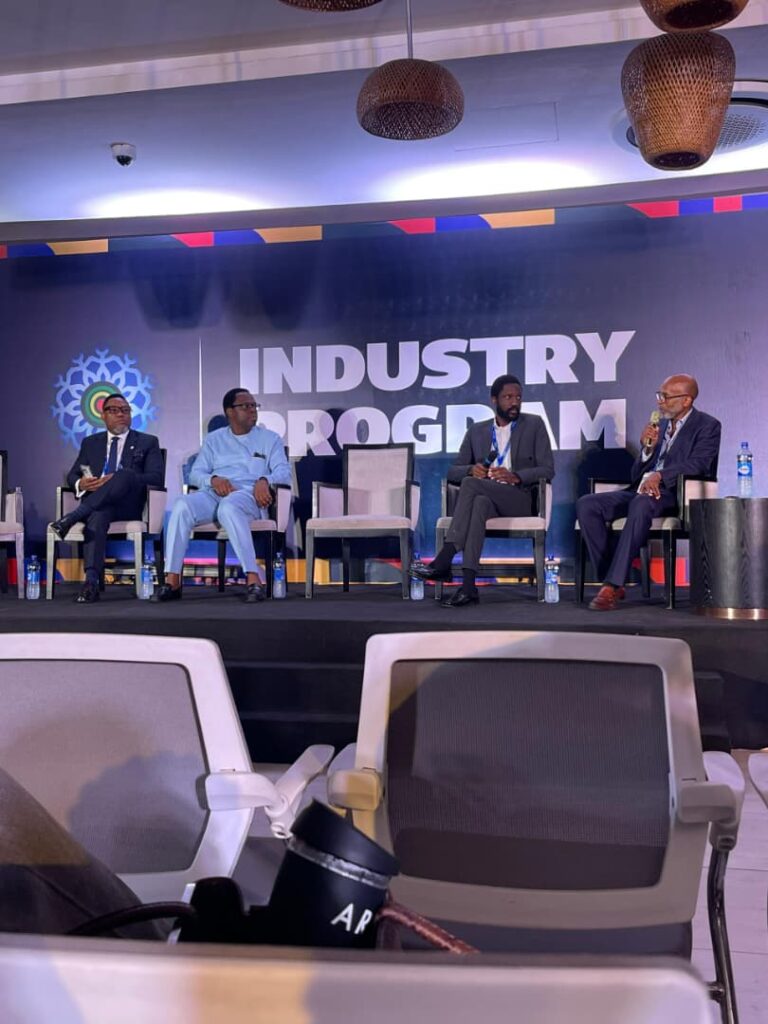
The morning continued with Panel 2: France and Nollywood Co-Production: Building the African Film Market Ecosystem. Moderated by industry voices, it centered on how French funding could bolster Nollywood without overshadowing local stories. Asurf Oluwaseyi, a Nigerian filmmaker, shared the grind of seeking resources: “I knocked every door that I could find for 3 cold dishes.” He pressed for co-productions as a workaround for anglophone filmmakers missing out on French grants: “Most French countries have access to grant money, but as an anglophone country, we do not have such an opportunity, so how about we do a co-production?”
Anais Poirier, representing French interests, emphasized exposure: “Attending international markets is very important as we bring young directors to show their works.” The talk circled back to accessibility—Oluwaseyi noted his drive stemmed from “looking for the possible accessible funds other than the ones I already have.” Attendees left with contacts exchanged, a reminder that ecosystems grow through deliberate links.
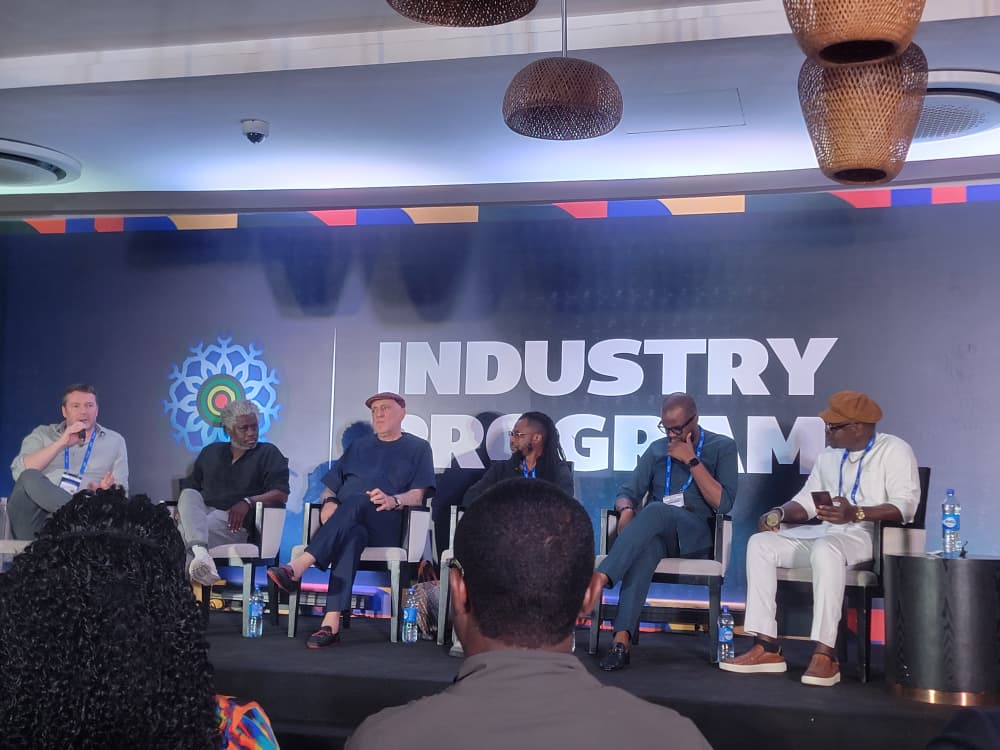
Shifting continents, Panel 3: Brazil and Africa—Bridging the Gap to the Lusophone World examined ties across the Atlantic, where Portuguese-speaking worlds overlap with African narratives. Queen Blessing, a producer, addressed language as a non-issue in the AI era: “The barriers with language have been breached with AI, so we can figure out collaborations without a language barrier.” She doubled down on openness: “We are open for business, and collaborations, and we are willing to work with Brazil, with language not being a barrier.” Uche Agbo, a director, echoed the call for partnerships: “For us as directors, we are looking for producers to partner with. This means that if there is a story to tell across the world, the members of the guild are willing to collaborate on such.”
Brazilian panelist Barbosa highlighted untapped potential: “In Brazil, we have a very strong connection with Afrobeat, but due to a lack of access, there have not been many collaborations.” Anna Raquel added that visuals transcend words: “Although we can see that language could be an obstacle, regarding artistic works, we can overcome the obstacle and do more productive work as the images will be the ones communicating.” Marcio Yatsuda stressed visibility: “The streaming platforms make Nigerian movies more accessible to other parts of the world,” and both he and Blessing agreed success shows in consumption: “For you to know how far you are doing, it’s when people can consume what you are doing.”
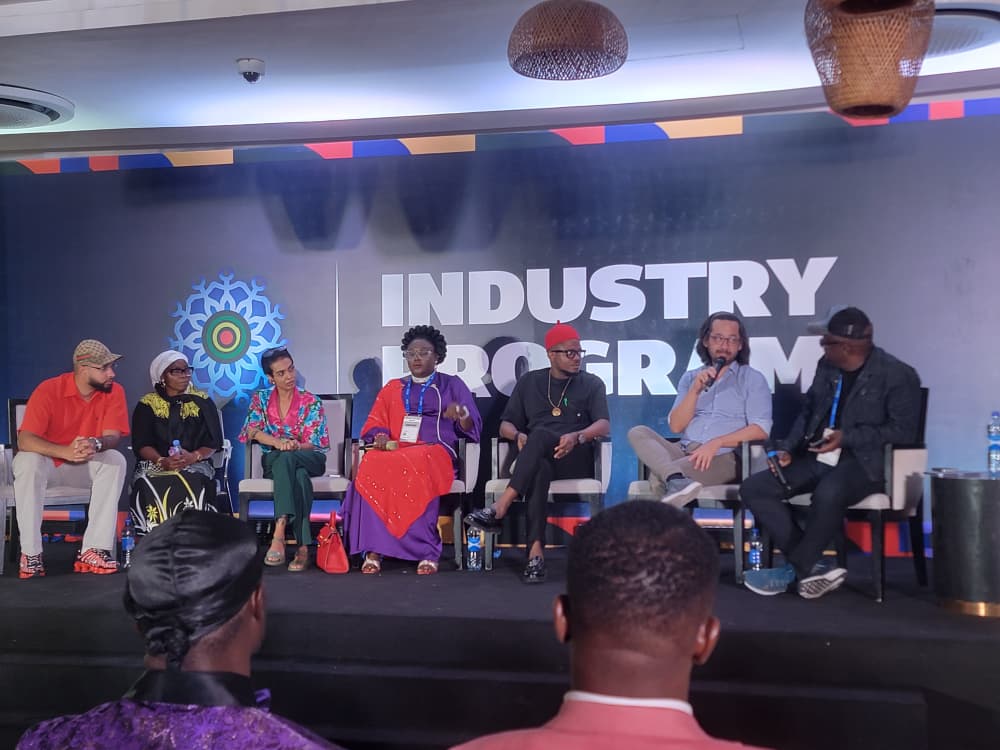
Afternoon sessions dove into sound’s narrative weight. Panel 4: Soundtrack Power: How Afrobeats Shapes Nollywood Storytelling unpacked music’s storytelling muscle. Ayo Animashaun argued for integration: “Soundtrack shouldn’t be one of the categories on movies, but it should be a major part of it.” He foresaw shifts: “When top artists make soundtracks, it’s going to change the landscape of movies and how far they will go.”
Sam Onyemelukwe traced cultural reach: “Afrobeat has transformed how people look at Nigerian and Africans,” while cautioning on tech: “Now that one can make an Afrobeat song with AI, it’s about being more demanding of artists and labels and looking for talent and creativity.” He also called for unity: “The Music and Film industry has done incredibly well, but partnership is crucial from a creative point of view as this will change the narrative.” Denis Cougnaud pushed promotion: “The movies must take the soundtrack to promote the movies all around the world.” Kevin Boakye grounded it in basics: “As a songwriter, the first thing you need to do is to register your works.”

The day’s capstone, Panel 5: Rhythms of the Continent: The Afrobeat Movement and its Impact on African Films, featured Davido alongside Asa Asika, Blessing Uzzi, and Dammy Twitch. Davido envisioned deeper involvement: “In years to come, I look forward to being more involved in movie productions. I want to take on roles like that of a taxi driver. I would also like to start a bond for creatives.” Twitch praised specifics: “I’m proud of a lot of videos, but one I can say is one of the top ten is ‘Na Money’ by Davido.” He tempered enthusiasm: “While afrobeat in the movie is good, I don’t think it can be forced into every film genre,” and urged support: “To keep the authenticity of afrobeat, I think there must be more investment in underground artistes.”
Asika focused on longevity: “Sustainability will work in keeping the authenticity of afrobeat.” Uzzi tackled access: “We need people who have the name to have us bridge the gap with funding. We can not keep announcing funds that nobody ever gets,” and pricing: “For prohibitive pricing, I think more musicians should be more involved to help in this regard.”
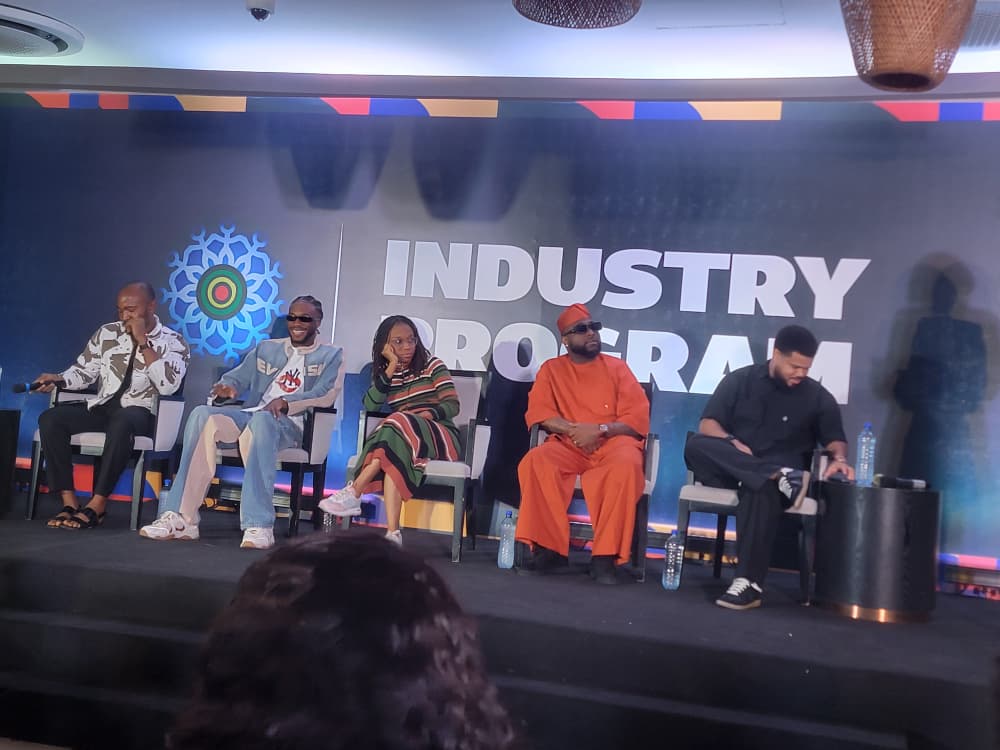
These panels, part of AFRIFF’s industry program, highlighted co-productions as bridges and music as a narrative anchor—practical steps amid broader talks on financing alliances with the Global South.
In Summary
Day 2 at AFRIFF laid the groundwork for collaborations that could reshape African screens. Follow Shock Africa on X, Instagram, and other platforms to track the remaining panels—more voices, more paths ahead.
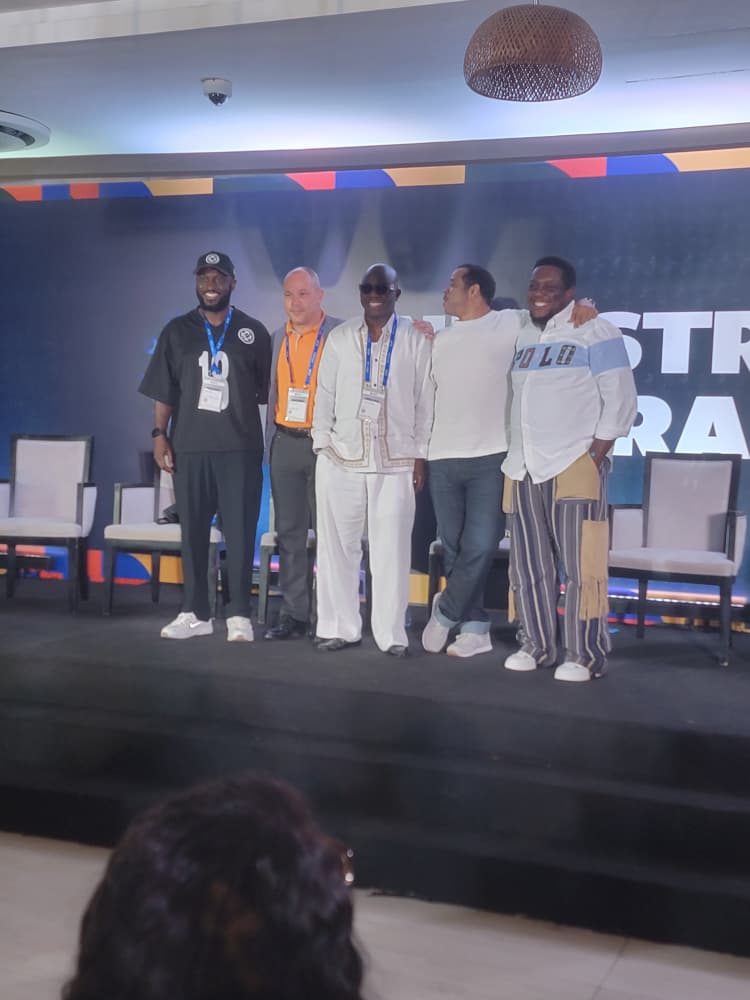
Thanks for Reading.
Shockng.com covers the big creators and players in the African film/TV industry and how they do business.
Let’s be friends on Instagram @Shockafrica
